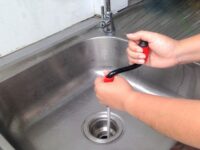4 Hurdles Faced by Relocating Biotech and Pharma Job Seekers

A quick perusal of the Pharma Diversity website reveals a ton of open pharma and biotech jobs in the U.S. It would seem not too difficult for biotech and pharma workers living in other countries to relocate and work here. In the grand scheme of things, it is not. Yet relocating workers still run into hurdles.
It’s not hard to find work in the U.S. biotech and pharma sectors as long as all your ducks are in a row. Provided you can legally work here, you have the right education and training, and you understand the culture well enough to compete for open jobs, no problem. But if you lack in any of the key areas, you are going to struggle.
Here are the top four hurdles faced by relocating biotech and pharma job seekers:
1. The Work Permit
American companies are required by law to verify candidates are legally allowed to work in the U.S. before making a hire. That means a job seeker relocating from another country needs to have a work permit at minimum. What many relocating workers fail to realize is that companies generally will not sponsor workers trying to get their permits. They expect candidates to already have permits before applying.
This obviously dictates that people planning to relocate to the U.S. obtain their work permits before leaving home. There is no point in coming here without a valid work permit, especially since it takes time to get one.
2. Lack of Certifications
Although not all biotech and pharma jobs in this country require certifications, some do. Obtaining any required certificates isn’t difficult, but job seekers may have to take positions they aren’t interested in until they can get certified. This could mean starting in an entry-level position in hopes of moving up the ladder months or years down the road.
3. Company Structural Differences
Many of the foreign-born job seekers that come to this country in search of biotech and pharmaceutical jobs hail from India and Pakistan, where they have already gained tremendous experience in their particular fields. Unfortunately, it is not unusual for them to encounter a different company structure here, a structure that may not place as strong an emphasis on experience and training.
This is especially prevalent in the sales and marketing side of biotech and pharma. A top producing sales professional from India will likely have to start at the bottom of the ladder and work their way up with an American company. Why? Because American culture is different. The sales professional will have to learn and adapt to that culture in order to succeed at the same level they did in their home country.
4. Different Business and Social Cultures
Speaking of company culture, this could be the biggest hurdle for relocating workers in the biotech and pharma sectors. Even the different social cultures can inhibit a relocating worker’s acclimation, thereby affecting their job prospects.
Something as simple as addressing an HR manager or recruiter by first name can make an enormous difference. A firm handshake at the end of an interview can go a long way toward advancing a candidate’s prospects. Adapting to our business and social cultures even improves a candidate’s networking opportunities. A strong network only increases the chances of landing a good job.
Biotech and pharma are certainly hiring. There are plenty of opportunities for relocating workers hoping to come here. But there are hurdles as well. Knowing what those hurdles are gives a relocating worker an advantage over other job seekers who do not possess such knowledge.








